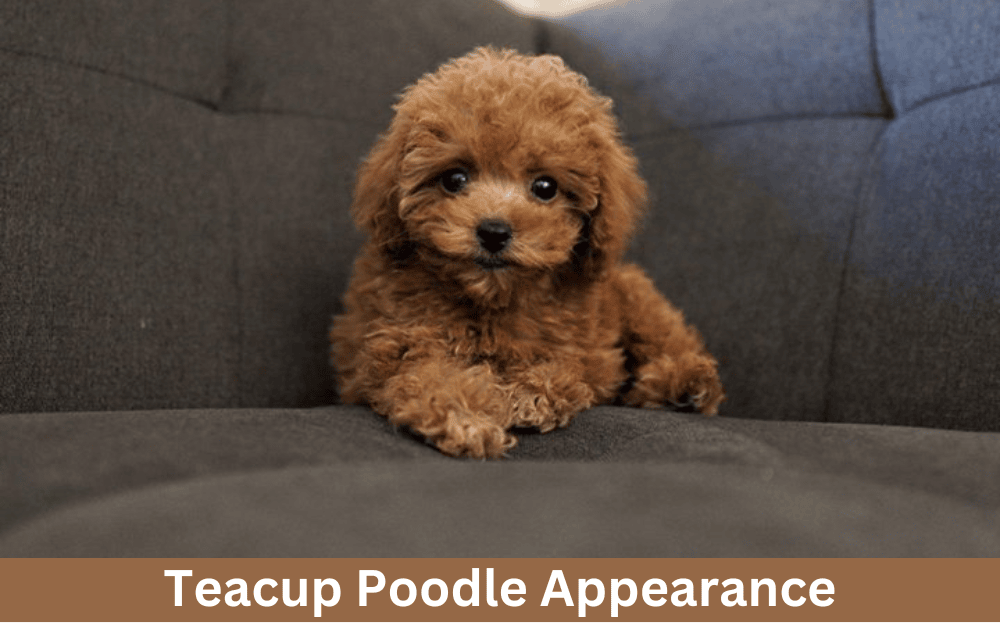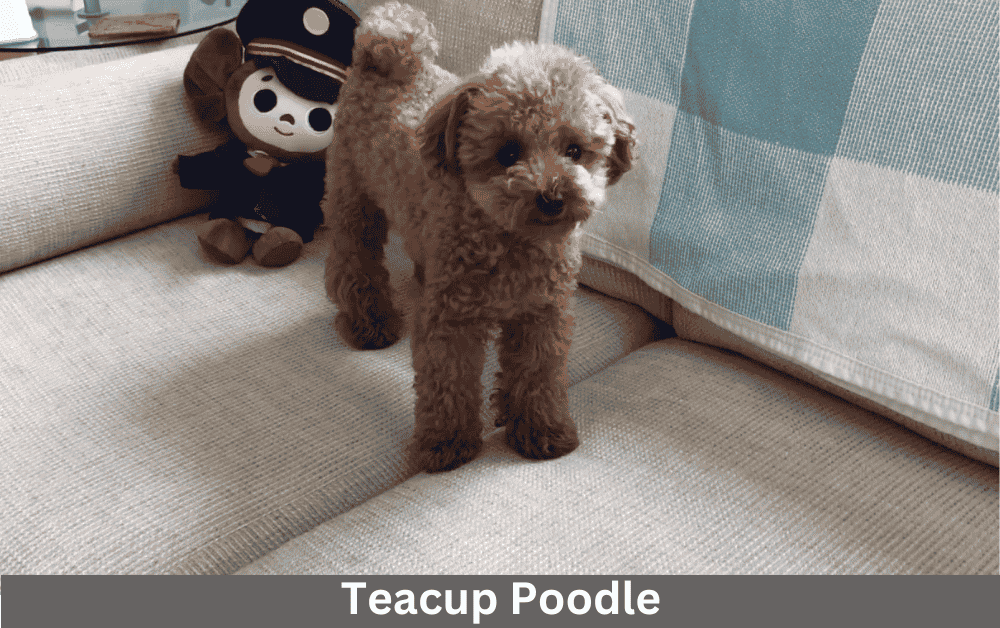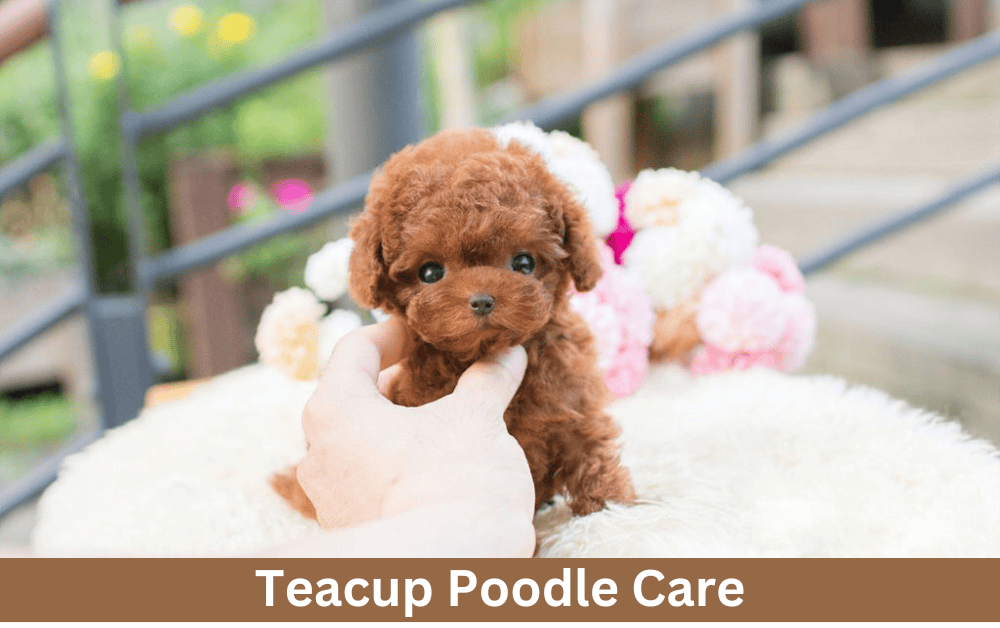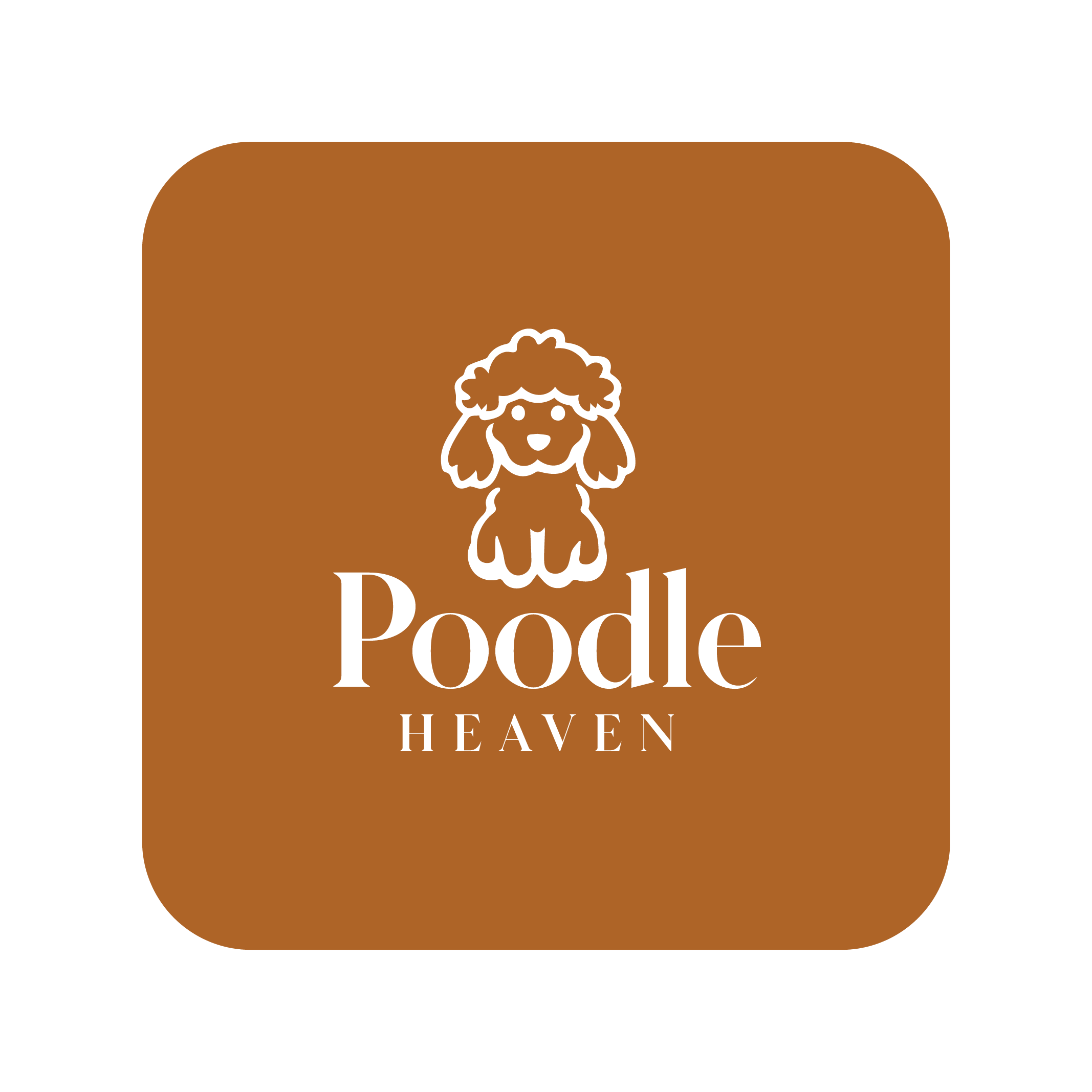Introduction to Teacup Poodles
Teacup Poodles are a smaller version of the standard Poodle and have gained popularity for their adorable looks and charming personalities. Despite their tiny size, they are just as intelligent, loyal, and loving as other types of poodles. Families love them for their easy trainability and ability to adapt to household routines. They require moderate maintenance and their exercise needs are minimal which makes them a low-maintenance pet for many owners.
Teacup Poodles are perfect for people who want a cute, affectionate companion without the hassle of high care demands. However, potential owners should evaluate their lifestyle to ensure it aligns with the needs of this delicate breed. With their mix of loyalty, elegance, and charm, Teacup Poodles make wonderful companions for the right families.
Quick Facts Table About Teacup Poodle
| Category | Details |
|---|---|
| Breed Overview | Teacup Poodles are a smaller version of Toy Poodles, known for their intelligence, loyalty, and affectionate nature. They are ideal for families and apartment living. |
| Size | Height: Up to 9 inches; Weight: Under 6 pounds. |
| Lifespan | 12–15 years with proper care. |
| Coat & Colors | Thick, curly, hypoallergenic coat. Colors include black, white, brown, apricot, red, silver, blue, cream, gray, and beige. |
| Temperament | Friendly, intelligent, loyal, and playful. Can develop separation anxiety if left alone for long periods. |
| Health Issues | Luxating patellas, hypoglycemia, dental disease, allergies, and more. Regular vet check-ups are essential. |
| Grooming Needs | Brush 4–5 times a week, professional grooming every 6–8 weeks, regular ear cleaning, and nail trimming. |
| Exercise Requirements | Short daily walks, playtime, and mental stimulation. Avoid overexertion due to their delicate size. |
| Training | Highly trainable with positive reinforcement. Early socialization and potty training are crucial. |
| Cost | 1,000–1,000–3,000 from reputable breeders. Adoption from shelters is a more affordable option. |
| Ideal For | Seniors, singles, or families without young children. Great for apartment living. |
| Hypoallergenic | Yes, due to their low-shedding coat. |
Origin
Teacup Poodles have become increasingly popular over the last 20 years. Breeders create them by selectively breeding Toy Poodles to achieve an even smaller size, often resulting in very small litters of one or two puppies. While standard Poodles originated in Europe over 600 years ago as hunting dogs, the American Kennel Club (AKC) does not recognize Teacup Poodles as an official breed because they do not meet the size requirements for the Toy group.
Today, Teacup Poodles are loved for their intelligence, loyalty, and affectionate nature. Their small size makes them ideal for city living, and they have become a favorite among urban pet owners.
Life Span of Teacup Poodles
Teacup poodles typically live between 12–15 years, but some can live even longer. Some factors that affect a teacup poodle’s life include genetics, diet, exercise, and preventative care.
Physical Appearance of Teacup Poodle Dogs

People who love refined yet small-sized companions should consider these double-character dogs. They carry their head shape in a round form with soft stop characteristics which produce an elegant look that matches standard-sized poodles.
How big do teacup poodles get?
Teacup poodle dogs accompany owners with their small height reaching about 9 inches and their weight coming in under 6 pounds.
The attractive features of teacup poodles include their floppy ears, lengthy nose, and their compact size dark eyes that stay attentive and alert. The combination of a graceful neck with a square body, along with a straight back and long legs, creates their exceptional body shape. Regular proper grooming is essential for preventing tangles in the thicker, denser curled soft coat. Toy teacup poodle puppies present a remarkable beauty due to their unique breed characteristics, even though solid colors are their most common type.
Colors
They exhibit a wide array of coat colors, including:
- Black
- White
- Brown
- Apricot
- Red
- Silver
- Blue
- Cream
- Gray
- Beige
Size
Teacup poodles validate their nickname by remaining an exceptionally small canine species. Teacup poodle puppies need careful handling because they measure just 9 inches, but their sweetness depends on their tiny stature of under 6 pounds. Small and fragile Teacup poodles need careful protection during yard play and home movement because their body structure remains delicate. A person looking for a small yet energetic pet companion will find the perfect match in toy teacup dogs because of their small size.
Coat type
The teacup poodle has short, thick, and curly hair, just like the standard poodle, giving it a unique and easy-to-manage look. This breed is an excellent choice for people with allergies because it sheds very little and produces minimal dander, making it hypoallergenic. If you own a teacup poodle, you must take special care of it. Regularly brushing its coat will prevent matting and tangling, keeping its beautiful, dense fur in great condition.
From my experience, I’ve found that regular grooming and occasional baths keep their hair neat and tangle-free. This also ensures their hair doesn’t block their eyes, allowing them to move comfortably and look their best. Since teacup poodles shed very little, they make wonderful pets for keeping your home clean while offering loyal companionship.
Long Ears
Teacup poodles possess charmingly long ears that elegantly frame their face, necessitating consistent care to avoid wax accumulation and ear infections. Regular trimming is essential for optimal hygiene and to prevent potential discomfort.
Docked tail
Many Teacup Poodle puppies used to have their tails docked early in life because people believed it made them look more attractive and met certain breed standards. However, today, most people see tail docking as unnecessary, so the practice has become less common. A natural poodle’s tail grows long, sits high on its body, and stays fully covered by its thick fur. Docking a poodle’s tail can harm its ability to communicate and maintain balance, as dogs rely on their tails to express emotions and stay steady. Most veterinarians and animal welfare groups now recommend leaving poodle tails natural and avoiding any human interference.
Poodle Types Comparison Table
| Feature | Toy Poodle | Miniature Poodle | Standard Poodle |
|---|---|---|---|
| Height | Up to 10 inches (25 cm) | 10–15 inches (25–38 cm) | Over 15 inches (38+ cm) |
| Weight | 4–6 lbs (2–3 kg) | 10–15 lbs (4.5–7 kg) | 45–70 lbs (20–32 kg) |
| Lifespan | 12–16 years | 12–15 years | 10–13 years |
| Temperament | Intelligent, playful, affectionate | Energetic, friendly, trainable | Smart, loyal, active |
| Energy Level | Moderate | High | Very High |
| Exercise Needs | Short walks, indoor play | Daily walks, playtime | Long walks, vigorous exercise |
| Grooming Needs | High (regular clipping) | High (frequent grooming) | High (professional grooming) |
| Good for Apartments? | Yes (very adaptable) | Yes (with enough exercise) | Better with a yard |
| Common Colors | White, black, apricot, silver, etc. | Same as Toy Poodle | Same as Toy Poodle |
| Best For | Companionship, seniors, small spaces | Families, active owners | Active families, outdoor enthusiasts |
Temperament of Teacup Poodle Dogs

Teacup Poodles are known for their friendly, intelligent, and loyal nature. These tiny dogs form strong bonds with their owners and love to stay close, often following them around the house. Their affectionate personality makes them excellent companions, but they can develop separation anxiety if left alone for too long.
These dogs are quick learners and enjoy solving puzzles, learning tricks, and engaging in interactive games. However, without proper training and socialization, they may develop behavioral issues like excessive barking or stubbornness. Early socialization helps them adapt to new people, pets, and environments.
Teacup Poodles are great for families but may not suit homes with young children due to their delicate size. They can be cautious around strangers initially but warm up quickly with proper introductions. Their playful and loving nature makes them ideal for seniors or singles living in apartments.
Sarah, a Teacup Poodle owner from New York, shares, “My Teacup Poodle, Bella, is my shadow. She follows me everywhere and always wants to be in my lap. She’s incredibly smart and learned tricks like ‘sit’ and ‘roll over’ in just a few days.“
Are Teacup Poodle dogs aggressive?
No, Teacup poodles are not aggressive. Teacup poodles stay small in size, making them popular pets because they are friendly and gentle. Unlike some other breeds, standard teacup poodles have a calm nature, rarely show aggression, and have low prey instincts. Taking care of these tiny dogs requires proper attention and care, which almost entirely stops them from biting, attacking, or acting rudely around new people.
Teacup poodles only show aggression when they feel scared, anxious, or bored. If you set up regular playtimes for your teacup poodle, it will avoid negative behaviors because play helps build strong, positive social connections. These dogs love bonding with people and don’t like being alone for long hours. Instead, they enjoy relaxing close to their owners. By meeting their emotional needs, you can prevent behavioral problems caused by anxiety or discomfort, ensuring your family has a happy and playful pet.
Are teacup poodle dogs good for families?
Yes, Teacup poodles make good family dogs. Loyal Teacup Poodles thrive best in homes with calm, mature people who know how to care for their delicate needs. While teacup poodle puppies can adapt to home life, their tiny size and fragile bodies make it hard for them to live in noisy environments or with very active children. Their small stature allows families to easily take them along wherever they go. With proper socialization and training, these puppies grow into well-behaved adults who avoid problematic habits, such as excessive barking.
Do teacup poodles get along with other pets?
Yes, Teacup poodles are good with other dogs. Teacup Poodles function as suitable companions for different pets because of their small size and gentle nature, but owners need to provide correct socialization and watch them closely. These small dogs have friendly personality traits, yet their fragile structure needs careful attention when interacting with dogs because harmful play could generate hurtful effects.
Teacup toy Poodles have a more soothing effect on cats because cats typically fear larger dogs, yet never fear these tiny breeds so they become well-tolerated pet companions for cats. Newly introduced kitties tend to harm Teacup Poodles during their first meeting because they lack experience with these tiny dogs. Such friendly pets and birds react to Teacup Poodles by interpreting them as potential threats due to their small size, which causes strange reactions of stress even though they mean no harm. The rare incidence of Teacup Poodle aggression requires homeowners to establish correct supervision levels while socializing their pets for peaceful coexistence with household pets.
Health problems in Teacup poodles
Teacup Poodles may inherit some problems related to either poor breeding or their incredibly small size. Due to their small size and genetic predispositions, teacup poodles face numerous health challenges. Some common health problems include:
- Luxating patellas: Loose kneecaps causing joint instability.
- Hypoglycemia: Low blood sugar, especially in puppies.
- Portosystemic Shunt: A liver defect affecting toxin filtration.
- Hydrocephalus: Fluid buildup in the brain.
- Heart Defects: Congenital heart issues.
- Collapsing Trachea: Respiratory difficulties.
- Dental Disease: Common due to overcrowded teeth.
- Allergies: Food and environmental sensitivities.
- Progressive Retinal Atrophy: Degenerative eye condition leading to blindness.
These conditions highlight the importance of proper breeding practices, regular veterinary care, and careful management of their health.
Caring for a Teacup Poodle Dog

Owning a Teacup Toy Poodle requires daily dedication because these small dogs need professional care to stay healthy and happy. They need constant attention, as leaving them alone can increase their anxiety. Without proper care, they may develop harmful behaviors. To keep them active and engaged, provide plenty of toys and take them on two walks daily. Regular grooming is also essential. Brush their hair multiple times a week to remove loose hair and prevent tangles or mats. Take them to professional grooming sessions regularly for haircuts and basic baths to maintain the right coat length.
For their safety, use pet-friendly stairs to help them reach high surfaces without getting hurt. Always provide fresh water and high-quality food, which can be wet or dry, depending on their diet. Feed them two to three small meals a day, along with healthy treats, to manage their hunger. Following these steps will ensure your Teacup Toy Poodle receives the specialized care it needs to stay healthy and happy.
Key Points to Remember:
- Daily Care and Attention
- Regular Grooming
- Safety Measures.
- Proper Nutrition
By following these guidelines, you can ensure your Teacup Toy Poodle stays healthy, happy, and well-cared for.
Food and Diet Essentials
A proper diet built around nutritious food determines the overall health of Teacup Poodles, no matter if the food is canned or dry. Giving unhygienic food makes Teacup Poodles susceptible to allergies, including food allergies, so owners need to select meals carefully. Owners can make healthy homemade meals that contain all the necessary nutrients for their pets with veterinarian consultation guides.
These small dogs must have continuous feeding because they face difficulties managing their blood sugar, especially during puppyhood. Teacup Poodles tend to develop dental disease, which compels owners to provide specific diets to preserve the pet’s entire health condition. Your Teacup Poodle can enjoy a long life of good health by getting special dietary treatment for its unique nutritional requirements and receiving suitable healthcare.
Exercise needs of a teacup poodle dog
The compact size of Teacup Poodles delivers greater accessibility to appropriate exercise because they do not need considerable space to remain fit. With their compact body size, Teacup Poodles require daily exercise that should be split throughout the day into multiple sessions of either twenty or thirty minutes. Several exercises exist to maintain their activity level:
- Walks: Short, consistent walks help maintain their physical health.
- Playing fetch: A fun way to burn energy and engage them mentally.
- Learning tricks: Training sessions provide both mental and physical stimulation.
If you’re a senior or living in an apartment, you’ll find this breed a good choice since a yard isn’t necessary. While growing, it’s important to:
- Be careful to avoid overexerting them, as their bones and joints are still developing.
- Prevent intense activities that could cause injuries if they play too hard.
Gentle training sessions and controlled play ensure their activity needs are met without straining their delicate frames.
Teacup Poodle Grooming Tips
Teacup toy poodles present grooming challenges due to their compact physique, but their dimensions make the practice workable. The non-shedding characteristics of these allergy-friendly dogs lead to fur matting and tangling unless owners provide weekly brushings of at least 4–5 sessions. Regular trims are necessary for their continuous coat growth to preserve control.
Taking your Teacup Poodle to a groomer every 6–8 weeks provides the best results, but owners who want to save money sometimes choose self-care for their dog’s coat. The maintenance of your Teacup toy Poodle relies on three essential tasks, which include nail cutting and both ears plucking and cleaning. These procedures combine to help keep your pet healthy and content.
Here are the grooming needs for a teacup poodle
- Trimming the fur
- Bathing a teacup poodle
- Brushing a teacup poodle
- Ear cleaning
- Nail cutting
- Eye care
- Poodle Dental Care
Training a teacup poodle dog
Teacup Poodles are highly intelligent, making them one of the easiest household pets to train. These small dogs learn quickly with positive reinforcement techniques because of their natural smartness. However, their small size doesn’t take away their unique traits—they can sometimes show stubbornness and dominance in their behavior. Without proper socialization and consistent boundaries, owners might find their Teacup Poodle trying to rule the household, developing issues like biting or aggressive behavior.
Potty training is especially important when your Teacup Poodle is a puppy. Take your tiny dog outside every 1-2 hours, as they are small but eager to learn. Praise them warmly for successes and use treats as positive reinforcement. If accidents happen, stay calm, clean thoroughly, and avoid scolding to prevent repeat incidents. Crate training can also help build bladder control and create a safe space for your pet.
Caring for the mental well-being and safety of Teacup Poodles requires setting firm limits and providing ongoing training. Owners should treat behavioral issues, like snarling, with the same seriousness as they would with larger breeds like Rottweilers. Consistent training efforts help Teacup Poodles overcome challenges and thrive. A stable routine, positive reinforcement, and clear boundaries create psychological security for your pet. Never overlook the importance of early socialization and continuous, calm instruction to ensure your Teacup Poodle grows into a well-behaved and happy companion.
Key Points to Remember:
- Training Tips
- Use positive reinforcement techniques for quick learning.
- Address stubbornness and dominance with consistent boundaries.
- Potty Training
- Take your puppy outside every 1-2 hours.
- Praise successes and use treats as rewards.
- Stay calm during accidents and clean thoroughly.
- Consider crate training for bladder control.
- Behavioral Care
- Set firm limits and provide ongoing training.
- Treat behavioral issues seriously, regardless of the dog’s size.
- Mental Well-being
- Establish a stable routine and clear boundaries.
- Focus on early socialization and continuous, calm instruction.
By following these guidelines, you can ensure your Teacup Poodle grows into a well-trained, happy, and well-adjusted pet.
How much does a Teacup Poodle Cost?
The purchase process of a teacup poodle demands understanding different factors that determine its price range. Price ranges for these small dogs start from $1000 and can extend up to $3000 or even more due to specific factors. A well-respected breeder determines a teacup poodle’s price because they guarantee excellent breed history along with high-quality fur and complete health integrity of their dogs. Price levels change based on the dimensions and pigmentations alongside gender characteristics of teacup poodles.
Where to buy teacup poodle dogs?
Testing a Teacup Poodle puppy requires trust in an ethical breeder to get a healthy, well-bred new pet. Small-sized adorable dogs create a high demand for their size and personality, making breeders practice unscrupulous breeding too often. Trustworthy information about breeders can be found in organizations focusing on reputable puppy ownership and health and breeding ethics standards.
The selection of a responsible breeder who focuses on health maintenance and resoluteness, together with responsible breeding methods, is pivotal when obtaining a Teacup Poodle since these dogs thrive with dedicated care. Your decision to choose an ethical breeder allows you to acquire a healthful, happy Teacup Poodle that will become an esteemed member of your household.
Conclusion
This loving and intelligent dog breed functions perfectly as an excellent choice for people and household teams who desire a compact companion. Teacup poodles exhibit excellent independence together with superb loyalty and high intelligence, which allows them to thrive both in urban and various living environments. Due to their delicate nature, people need to provide constant poodle puppy care through proper grooming. a balanced diet, and health management to prevent issues that come from having a small size.
These dogs suit elderly citizens and people in apartments because of their friendly behavior and straightforward training ability while casual exercise needs, yet they might not work well for households containing young children. Getting a teacup poodle demands both choosing an ethical breeder and scheduling routine veterinary visits to achieve both well-being and happiness. The correct environmental care and associated attention enable teacup pets to become sources of extreme happiness for any household.
FAQs About Teacup Poodle Puppies
Do teacup poodle dogs bark a lot?
The vocal nature of Teacup Poodles causes them to bark at unfamiliar sounds and strangers to warn their owners. This character makes Teacup Poodles useful security guardians. If Teacup Poodles receive inadequate socialization training, their vocalizations will often turn into persistent barking. Training your Teacup Poodle in its early development will enable you to minimize and control unnecessary barking.
Are teacup Poodle dogs easy to train?
The high intelligence and responsive nature of Teacup Poodles allows them to become outstanding trainees. Positive motivational approaches and learning new instructions bring delight to Teacup Poodles as they respond favorably to training methods. Systematic training allows owners to teach their dogs proper behavior and enhance good behaviors.
Are teacup poodle dogs energetic?
Although they measure less than 18 centimeters, Teacup Poodles maintain high vitality. Teacup Poodles need both physical and mental engagement as the main foundation for their happiness and wellness. Because of their fragile structure, owners should provide short walking periods and interactive games but need to avoid pushing them too hard.
Are teacup poodles good apartment dogs?
Teacup Poodles succeed in apartment life because their miniature body makes them suitable for this environment. The small body size of Teacup Poodles makes it possible for them to find happiness in both small spaces and indoor environments. Daily exercise together with mental stimulation remains vital for Teacup Poodles who live in apartments but they can adapt to such constricting homes.
Are teacup poodles good watchdogs?
The alert nature of Teacup Poodles enables them to bark for owner notification of suspicious activities, thus proving them useful as watchdogs. Their strong alertness enables them to react fast to both strange sounds and unidentifiable individuals.
How long do teacup poodles live?
Teacup Poodles live an average of 12 to 15 years. Multiple factors, including genetics as well as diet plan, exercise routine, and healthcare quality determine the lifespan of these dogs. A combination of routine veterinary appointments with proper diet and wellness activities helps these dogs reach longer, healthier life spans.
Are teacup toy poodles purebred?
Poodle breeders have selected Teacup Poodles through artificial breeding because the dogs should remain small. The term “Teacup” only describes physical size because Teacup Poodles derive from the Standard and Teacup Toy Poodle bloodlines yet belong to the same breed category. The American Kennel Club (AKC), together with other significant kennel clubs, have refused to recognize the Teacup Poodle as a recognized size breed.
Are teacup toy poodles hypoallergenic?
The easy-to-care-for curly coat of Teacup Poodle dogs makes this breed hypotensive to allergy reactions because dander particles are trapped inside the coat structure, which decreases allergen distribution. Hypoallergenic dog status cannot be assigned to any breed because allergens exist in both the saliva and skin cells of canine species. Constant cleaning and grooming measures help reduce allergen amounts in the environment. Before adopting a Teacup Poodle, potential owners with allergies should test their allergy reactions toward the dog.

